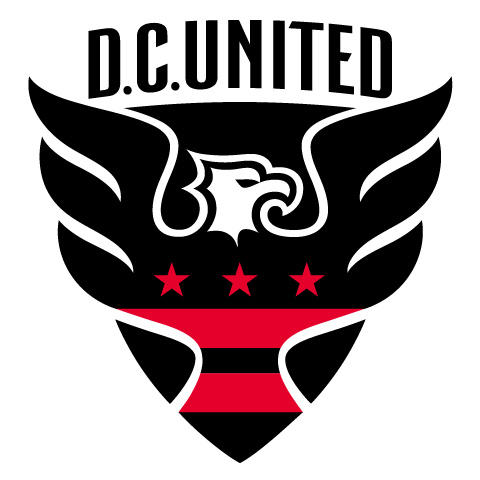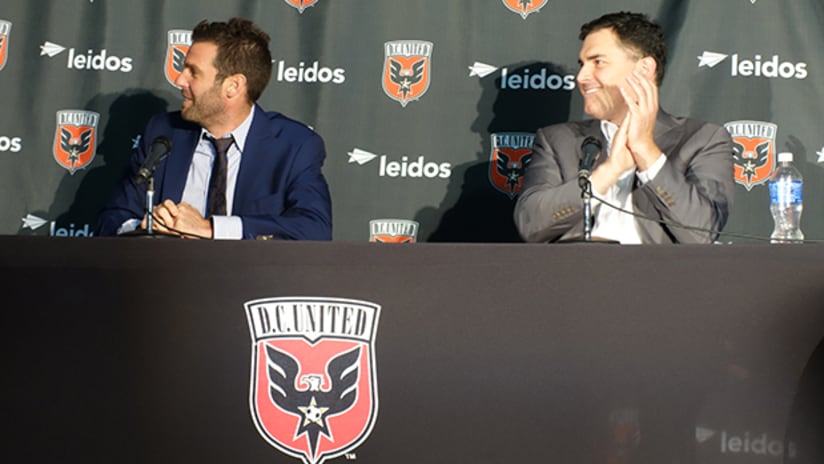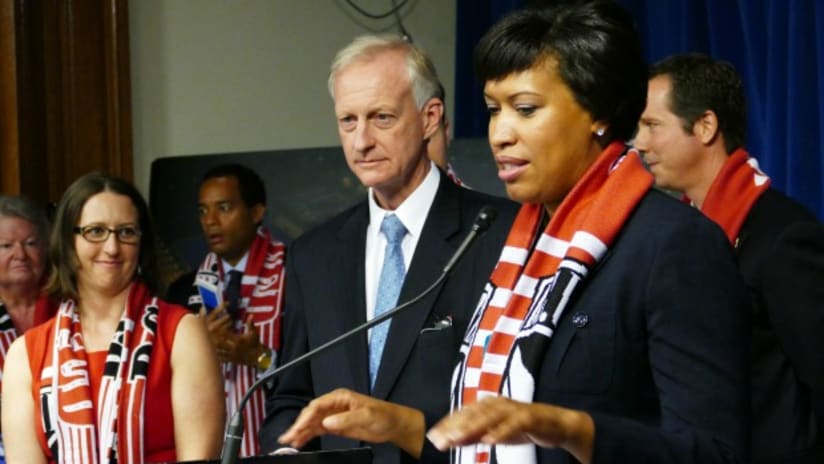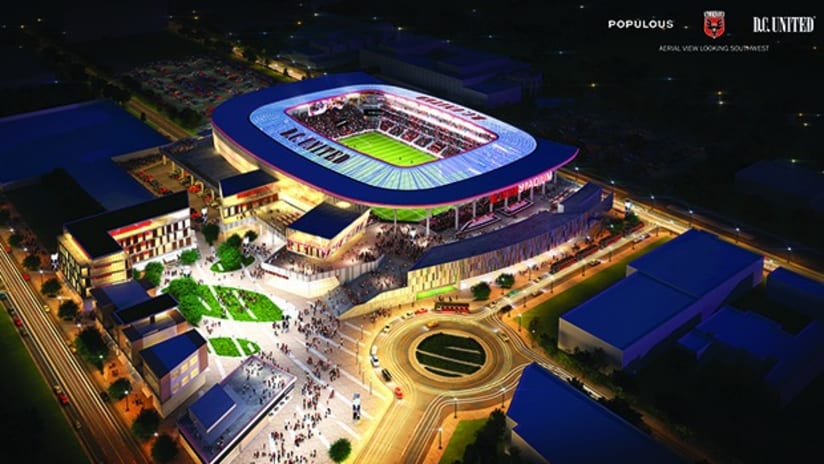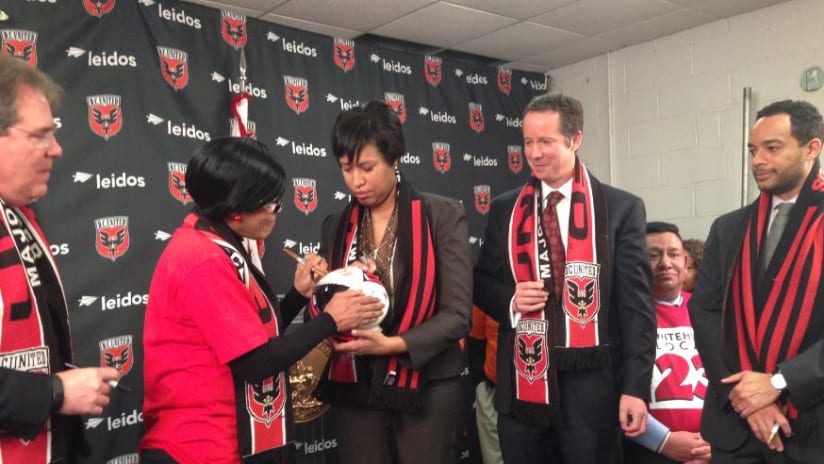Guest Comment
SUBSCRIBER CONTENT: Nov 14, 2014, 6:00am EST
Jason Levien
Since first taking the field at RFK Stadium nearly 20 years ago, D.C. United has earned its place as a positive catalyst in the D.C. community. The team has had great success on the field, and it has developed a deep connection with the people of the District. Soccer is thriving in this city: D.C. led the country in television ratings during the 2014 World Cup, and more than 20,000 fans were at RFK this past weekend for a playoff game.
Beyond serving as a source of entertainment and pride for the District, D.C. United has a stellar record of community service through the D.C. United Foundation. In 2014 alone, the foundation has partnered with more than a dozen local groups, contributed hundreds of hours of volunteer work, operated a free afterschool soccer program and brought hundreds more disadvantaged youths to games.
As RFK deteriorates, District residents have engaged in a spirited debate about the proposal to build a new home for D.C. United. We welcome this debate and are grateful for the strong support we have received from the mayor, members of the D.C. Council and residents across the District who want to see a permanent home for D.C. United. District residents from all eight wards have sent more than 90,000 emails communicating their support.
We are particularly grateful to Mayorelect Muriel Bowser and Council Chairman Phil Mendelson, who commissioned an independent costbenefit analysis that confirms the enormous positive economic impact the stadium project will have on the District. As the study notes, over the next 32 years, the stadium project will generate $2.6 billion in new economic activity and will create 1,683 new fulltime equivalent jobs for District residents.Additionally, the District will derive a net fiscal benefit of $109 million from the stadium itself, even when the proposed tax phasein for the project is taken into account.
The new tax revenue generated from this project will have a real impact on District residents as it can be used to fund critical District initiatives, including hiring teachers, renovating District schools, putting more police, fire, and emergency medical workers on the streets, and rebuilding aging infrastructure. Moreover, the stadium proposal will spur economic development along the Anacostia River, providing an opportunity for the District to complete the revitalization of the Buzzard Point/Capital Riverfront neighborhood.
While there are risks inherent in any deal, we have strived to mitigate those risks. The District's financial obligation is capped at $150 million, while its projected costs are expected to be no more than $120 million. All construction costs for the stadium will be privately funded. This will allow the District to keep its financial risk to a minimum while bolstering its tax base. D.C. United will invest $150 million in stadium construction and D.C. United — not the District will be responsible for all overages on stadium construction and land preparation, including environmental remediation. The project will not result in any new taxes on District residents or businesses.
As Washington Business Journal EditorinChief Doug Fruehling noted recently,"Now that we have [a stadium study], we should heed its conclusion." The stadium proposal is a good deal for District taxpayers and a tremendous economic opportunity for the District. After months of careful consideration and public debate, the time has come for the Council to vote on and approve a permanent home for D.C. United.
Jason Levien is Managing General Partner of the D.C. United soccer team.
